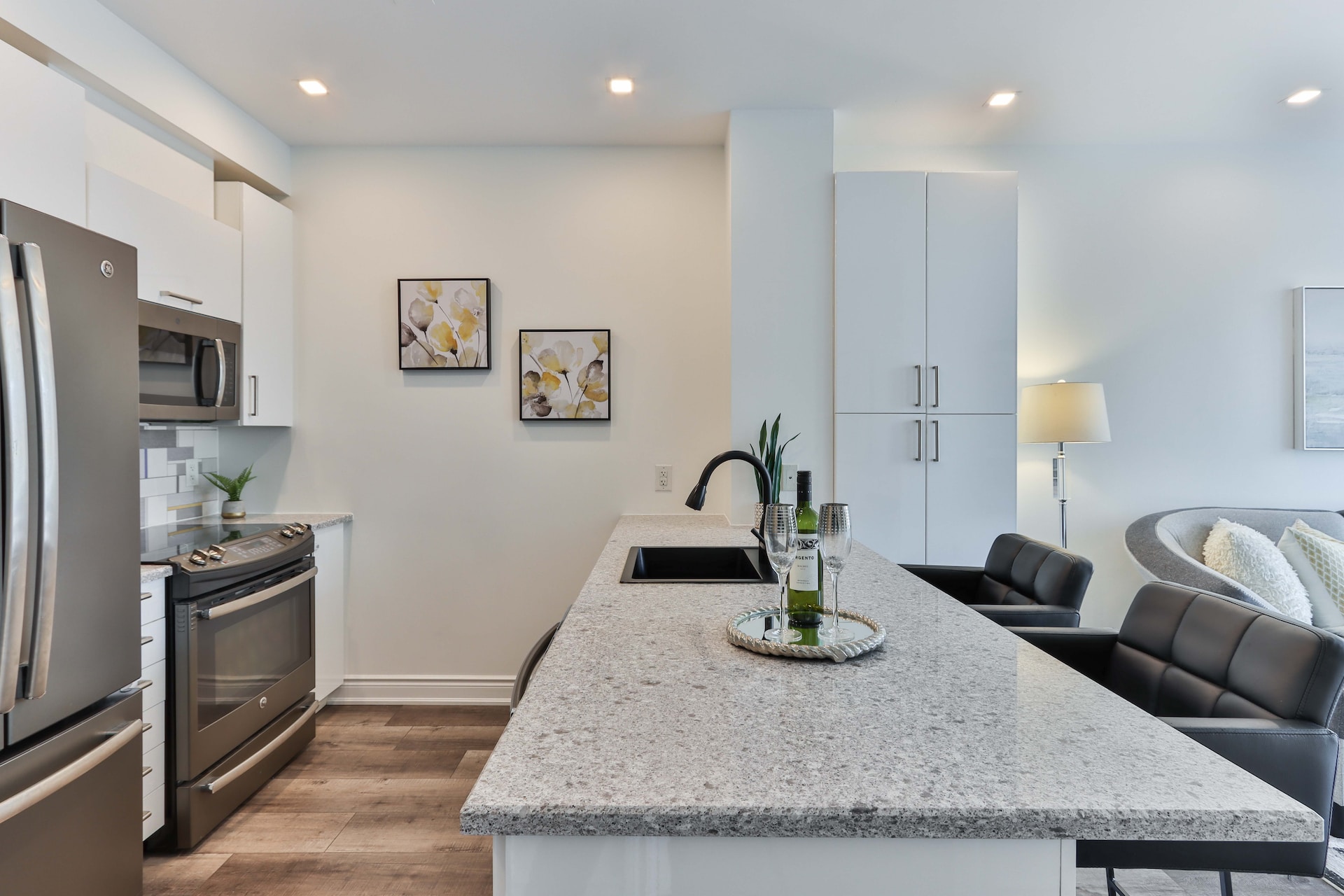Exploring the Different Types of Kitchen Countertops
The right countertop is a crucial ingredient to an efficient, well-designed kitchen. It’s also a style statement and contributes to the room’s ambiance.
Durable granite counters resist heat and scratches while enhancing any kitchen design. Its smooth surfaces make them hygienic and easy to clean.
Contents
Marble
Marble kitchen countertops scream luxury and add a touch of elegance to any space. This metamorphic rock has been used in building materials for centuries and is an ideal surface for various design styles. Marble is a popular material for kitchen worktops and fireplace surrounds because it naturally resists heat. Marble can be vulnerable to stains, so you must keep it sealed regularly.
Quartz and quartzite countertop surfaces are excellent alternatives to marble. Their colors resemble marble, but they are a more durable and hygienic material. They also offer a more consistent color and pattern, so you don’t have to worry about streaking or etching.
For an eco-friendly option, recycled glass kitchen countertops are a striking choice. This nonporous material can be colored with food-safe dyes and poured into custom shapes to suit any style. It is heat-resistant and scratch-resistant. It requires little maintenance aside from routine sealing and can increase the value of your home.
Granite
Granite is a naturally occurring stone that is highly durable and available in various design possibilities for kitchen countertops. Its perfectly flat surface is ideal for rolling out cookie dough or kneading bread, and its heat-resistant nature means that hot pans won’t scorch its finish. Spills wipe up quickly, and the material resists etching from acidic substances.
Unlike granite, quartz is an artificial substance in various colors and patterns. It is more intricate and resistant to fire. Due to its nonporous makeup, it does not need resealing and is less susceptible to bacteria than granite countertops.
If you want a unique counter incorporating natural elements, consider river rock counters, which feature small rocks suspended in acrylic or cement. Although this counter material is frequently used in bathrooms, it may also give a Craftsman or cottage-style kitchen a rustic touch. Alternatively, you can use recycled glass counters, which incorporate glass shards in concrete or clear acrylic to create unique slabs in colors that vary from frosty whites to vibrant greens and topaz blues.
Quartz
With a wide array of colors and decorative textures, quartz kitchen countertops are some of the most eye-catching options on the market. Made from one of the hardest minerals, these counters are 93 percent stone and 7 percent resin—and unlike natural stone slabs, they’re engineered in a factory.
Though once considered a modern material, quartz can now be manufactured to authentically mimic traditional granulated or veined marble—making it perfect for transitional or rustic decor styles. Plus, it holds up to stains better than granite or concrete, and its nonporous surface doesn’t harbor bacteria.
Like granite, quartz counters are scratch-resistant but can be marred by heat marks (like from hot pans or bakeware) and must likely be resealed occasionally. Installing quartz professionally is best if you want the benefits of a durable, beautiful countertop. Look for showrooms with a curated list of premium manufacturers, and ask about installation and care tips to make the most of your investment.
Tile
While tile kitchen countertops are less popular than they once were due to the trend toward low-maintenance, seamless counters, the material still offers a versatile aesthetic. Ceramic tiles can offer endless creative possibilities, from simple square patterns to elaborate mosaics, and they are a do-it-yourself and budget-friendly choice for kitchen remodeling. However, their porous texture means they can absorb stain-causing liquids, and they need to be regularly sealed to maintain their durability and resistance to heat from pots and pans.
Another DIY option, resin countertops, can create a striking style with unlimited color and pattern choices. These countertops are crafted from a mixture of liquid epoxy and hardener and are available in kits that make them easy for homeowners to install. Resin countertops are relatively durable and resist stains, burns, and scratches better than most other materials. However, their surface can become discolored over time from the constant exposure to sunlight. In addition, grout lines can crack or chip easily if dropped or hit by heavy items.

